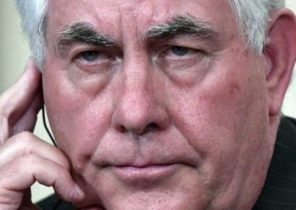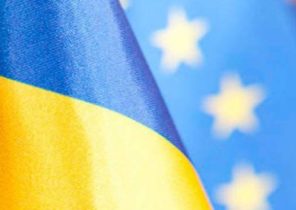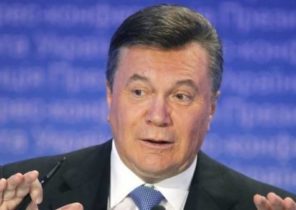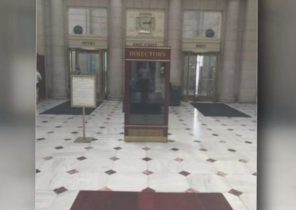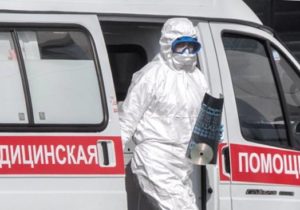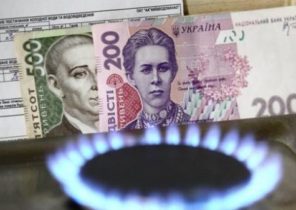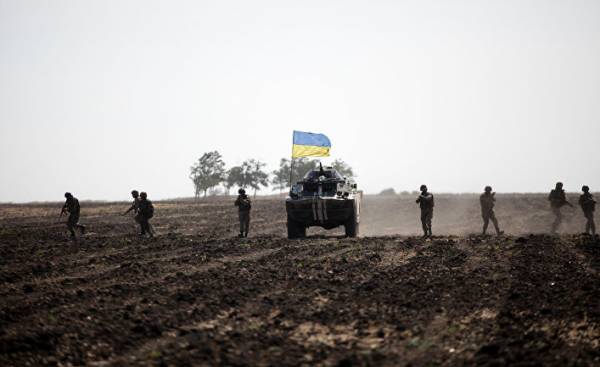
Andrei Artemenko, a little-known Deputy-populist, became famous in the USA after The New York Times reported that he worked with the Trustees of Donald trump on a peace plan for Ukraine. You can’t say that he’s had his fifteen minutes of fame: suddenly many politicians have plans to end the conflict in Eastern Ukraine, generated chaos in the United States and local disappointment, because the country is part of the fourth anniversary of the “revolution of dignity” 2014, with almost nothing achieved, and the level of threats to its existence are still high.
An article in The New York Times was worth Artemenko membership of the Radical party in the Ukrainian Parliament, headed by Oleg Lyashko. The party accused him of seeking to violate the integrity of the country. The idea Artemenko was to take the Crimea is leased by Russia for 30-50 years, if it is approved at a national referendum, and then allow the people of Crimea to decide what country they want to belong. The legislator also proposed to hold a referendum on whether to give the Eastern Ukraine broad autonomy; payments to Russia for the lease of the Crimea would be used to restore the war-torn region.
This is an unrealistic plan: the Kremlin considers Crimea to be annexed and will never agree to rent them from the Ukraine, and especially to pay for it. However, other recent attempts at peacemaking are also unrealistic.
Viktor Baloha, a former emergencies Minister under the administration of ousted President Viktor Yanukovych, offered to organize a referendum in the East of Ukraine and, separately, in the rest of the country to determine the status of the Eastern regions. The result could be decided or their unconditional accession to Kiev, or on the construction of a wall in the border region in Israel. Serhiy Taruta, a multimillionaire who in 2014 was appointed Governor of the Donetsk region, but failed to stop Russian-backed separatist insurrection, has published his own plan earlier this month. He called on the Parliament to deprive the President of Petro Poroshenko authority to agree on a deal to officially recognize the last freely elected local councils in the East of Ukraine — those who were formed in 2010 with all negotiations and send peacekeepers to the United Nations.
There may even be a plan calling for Yanukovych, who fled to Russia three years ago to return to Ukraine as the leader of the rebellious Eastern regions. Radio Liberty reports that such a scenario has developed Constantine kilimnik, former assistant campaign Manager to trump Paul Manafort in Ukraine, although he denies it kilimnik. Yanukovych, in turn, sent to the world leaders, including Trump, German Chancellor Angela Merkel and Russian President Vladimir Putin, almost identical letters (published by the mouthpiece of the Kremlin propaganda RT), which calls for international pressure on Kiev to hold elections in the East of Ukraine, as envisaged by the Minsk agreements and, failing that, to hold a referendum on independence for Eastern Ukraine.
There were other, more cautious Ukrainian attempts to find a compromise with Russia, including in a widely criticized article in one of the richest people of Ukraine Victor Pinchuk in the Wall Street Journal. None of the authors of these proposals has no effect on Poroshenko and his government, and, of course, is not a thought leader for Ukrainians. There is little chance that the Kremlin wants to compromise, because in the medium term, destabilization is the strongest weapon against the attempts of Ukraine soutii orbit.
But there are good reasons why these mediocre players and former influential figures feel that it is probably time to remove the taboo on substantive dialogue with Russia. The idea is not to them a peace plan was adopted, and to play on the contrast with the helplessness of the government.
Poroshenko and his Ministers found themselves in the unenviable position of being able to deal with the Pro-Russian side in Eastern Ukraine, which carries out deliveries of coal to Ukrainian thermal power stations, and not wanting to deal with the nationalist activists who organized the blockade of trains between rebel and Pro-government territories. The blockade forced the separatists capture Ukrainian factories in areas under their control that will lead to a new recession in the country.
First of all, the authors of the various proposals feel a possible change in sentiment in Ukraine, due to several years of grueling battles of local importance and unsuccessful reforms. They see political opportunities, which can benefit from Poroshenko and other government officials, too restricted by his own framework.
A recent poll conducted by the Kiev international Institute of sociology shows that the majority of respondents in the southern and Eastern regions of Ukraine (under the control of the government) believe the revolution 2014 coup and undermining the shaky Minsk peace agreements, blaming the Kiev government to a greater extent than Moscow. Russian propaganda is likely to play a role in attempts to sow discord in the Ukraine, but corruption in the government and the lack of significant changes for the majority of Ukrainians outside of the creative class as important. According to the results of a recent survey, almost three-quarters of Ukrainians said that in 2016 the situation in the country and their own well-being has changed for the worse.
Without an end to the war, the economic situation in Ukraine are unlikely to improve even under the most favorable external circumstances. The political vacuum created by the preoccupation of Washington and Europe’s internal problems, undermines the government Poroshenko, who made the big bet on the support of the West. If this support disappears, the forces against Poroshenko, including revanchists Yanukovych will receive high chances to return.
After 2014, the political elite needs quick victories and new ideas that could inspire Ukrainians. In a recent speech, Alexander Turchinov, acting President of Ukraine after the revolution of 2014, and now the head of the Council of national security and defense, said Ukrainian society does not need “tales of a brighter European future”, and it would be better to focus on creating strong, well-armed state. However, it is not easy to implement in a country that remains ethnically divided, war-weary and suffering from a disappointment is built around the EU hopes 2014.
This year the idea of an armed sovereignty will collide with the ideas of neutrality and flexibility. This is a more difficult choice than the old dichotomy of “Russia vs. Europe”, post-Soviet political elite of Ukraine have a poor grasp of the situation. At the same time, Putin is ready to do everything in his power to turn the country back towards Russia.
